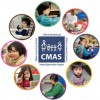Expert Corner
 A Blueprint for Supporting Emergent Bilinguals in Your Program: Roma Chumak-Horbatsch’s Linguistically Appropriate Practice
A Blueprint for Supporting Emergent Bilinguals in Your Program: Roma Chumak-Horbatsch’s Linguistically Appropriate Practice
At one time or another, all child care professionals in Canada—whether in a newcomer-focused program or not—will likely look after non-English speaking children. Read More Making Room for Diversity in Your Program: Q&A with Valerie Rhomberg
Making Room for Diversity in Your Program: Q&A with Valerie Rhomberg
When you walk into a program that cares for newcomer children, it is common to see multiple cultures and languages represented in the physical child care environment, as well as through the people in it: the staff, the children and their families. Multiculturalism is supported and embraced in countless ways.
But what about diversity? Isn’t it just another word for multiculturalism?
Not necessarily, according to Valerie Rhomberg, Manager of Academic Programs at Mothercraft College and co-author of "The Affective Curriculum: Teaching the Anti-bias Approach to Young Children". Read More
 Helping children with Sensory Processing Disorder (SPD)
Helping children with Sensory Processing Disorder (SPD)
You know about the five senses—sight, hearing, taste, touch and smell—but you may not be aware that most of us have two additional sensory systems that help us to control and integrate the information we gather. Children with Sensory Processing Disorder (SPD) find it difficult to process and act on information received through these senses. Read more...  Leaping the Learning Curve: Five HR Practices that Improve Child Care Administration
Leaping the Learning Curve: Five HR Practices that Improve Child Care Administration
Your role as administrator is one of great responsibility—especially as it involves a program that cares for children. However, the human resource function, which can be a full time career in other industries, is usually just a part of the child care administrator’s workload. Finding the time to get up to speed, not to mention locate child care specific resources, on all the HR aspects of administration can be near impossible. Read More Celebrate multiculturalism with a “Kids Around the World” bulletin board
Celebrate multiculturalism with a “Kids Around the World” bulletin board
Canadian Multiculturalism Day is an opportunity to celebrate our diversity! Here’s a fun activity idea that can also personalize and bring culture into your space.
 Mentoring for Personal and Professional Growth with Glory Ressler
Mentoring for Personal and Professional Growth with Glory Ressler
Here is the first of four workshops from the 2011 Professional Development Conference for LINC Childminders. Mentoring is a powerful vehicle for personal and professional growth. Glory Ressler, from Mentoring Pairs for Child Care project, facilitates a fun and informative exploration of what mentoring is, and ways to apply mentoring. View the workshop
 Six Reasons to Love Your Job!
Six Reasons to Love Your Job!
If you work with immigrant children,1) You are leading the way in a growing professional field!
Canada welcomes 250,000 immigrants each year, including over 8,000 children and youth, speaking over 80 different languages. You work with these families each and every day. When there is a crisis in another part of the world, and refugee families arrive here in Canada, for many of them, you are their first contact!
Read More

